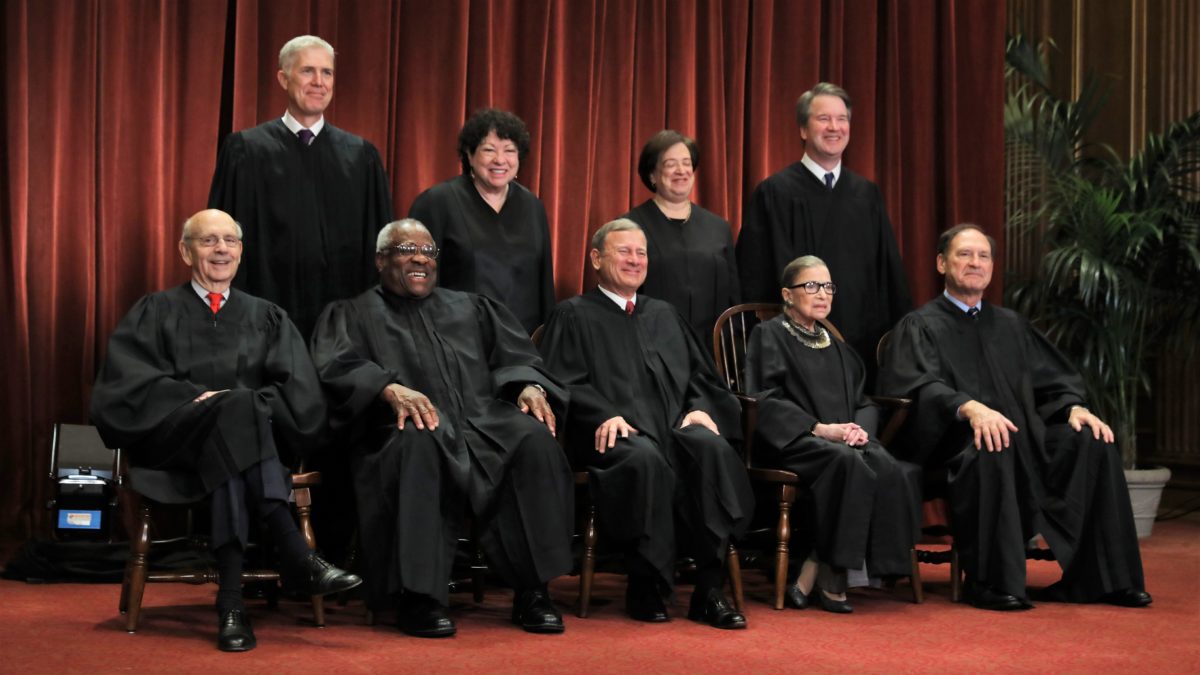
Typically, when the Supreme Court of the United States hands down a 5-4 decision, it’s safe to assume that the votes broke down along liberal versus conservative lines. But Monday’s ruling in Georgia v. Public.Resource.Org Inc. found Chief Justice John Roberts and Justices Sonia Sotomayor, Elena Kagan, Neil Gorsuch, and Brett Kavanaugh in the majority, while Justices Clarence Thomas, Ruth Bader Ginsburg, Stephen Breyer, and Samuel Alito dissented. An unusual breakdown for sure.
The underlying issue in the case promised to be something of a wolf in sheep’s clothing. On the surface, we had a pretty bland copyright dispute. The State of Georgia argued that annotations (short explanatory passages drafted by editors to explain the statutes in context) to its legislative code can be protected under federal copyright law. Of course, it came down to money; Georgia didn’t want Public Resource.Org to publish the state code online for free when it could use as the state code as a source of income. Seems straightforward enough.
But this wasn’t really a dispute over who owns what. This was a dispute about the nature of law itself. Statutes themselves cannot be copyrighted. Under what’s known as the “government edicts doctrine,” no one can own the law.
But annotations– the little notes that publishers include to explain statutes – aren’t statutes. So do those law-like annotations get treated as statutes for copyright purposes? Where does the definition of “law” end? Set against the backdrop of today’s ubiquitous cable news commentators, the distinction between “law” and “commentary” had some real potential for excitement.
While the dissenters appeared to keep their eyes on those weighty questions, though, the majority side-stepped to decide the case on slightly different grounds.
The five-justice majority held that annotations are not copyrightable, but chose to base its decision on the authorship of those annotations, as opposed to the nature of the annotations themselves. The Official Code of Georgia Annotated (OCGA) is assembled by the Code Revision Commission–a state entity whose majority of members are state legislators. That commission farms out the drafting of annotations to LexisNexis in a work-for-hire arrangement, and then passes those annotations by the legislature before publication.
Roberts’s opinion got close to the question of whether “annotations” count as “law” without actually answering it. He criticized Georgia for “minimiz[ing] the OCGA annotations as non-binding and non-authoritative,” and pointed out that, “that description undersells their practical significance.” Roberts then provided an important example:
Imagine a Georgia citizen interested in learning his legal rights and duties. If he reads the economy-class version of the Georgia Code available online, he will see laws requiring political candidates to pay hefty qualification fees (with no indigency exception), criminalizing broad categories of consensual sexual conduct, and exempting certain key evidence in criminal trials from standard evidentiary limitations—with no hint that important aspects of those laws have been held unconstitutional by the Georgia Supreme Court.
But instead of deciding the case on the grounds that annotations are in fact “law,” the majority focused on the “authorship” rule. Under the Copyright Act and cases that have interpreted it, anyone who can speak with force of law is not an is not an “author” for copyright purposes. As Roberts pointed out, “That rule applies regardless of whether a given material carries the force of law. And it applies to the annotations here because they are authored by an arm of the legislature in the course of its official duties.”
The majority chastised the State of Georgia as well as Justice Thomas for having only “purported concern for the text of the Copyright Act,” warning that without excepting annotations from copyright protection “[t]he less bold among us would have to think twice before using official legal works that illuminate the law we are all presumed to know and understand.”
Thomas, however, struck back along with the dissenters, accusing the majority of shirking its duties to look further into past precedent:
In my view, the majority’s uncritical extrapolation of precedent is inconsistent with the judicial role. An unwillingness to examine the root of a precedent has led to the sprouting of many noxious weeds that distort the meaning of the Constitution and statutes alike.
Thomas argued that “author” should be read more narrowly and should not include statutory annotations, which are not themselves laws. Furthermore, those who write annotations “are incentivized by the copyright laws to produce a desirable product that will eventually earn them a profit,” which renders them “analogous to other copyrightable materials.”
Even more narrowly to the point, Justices Ginsburg authored her own dissent in which Justice Breyer joined. She’s a purist, and annotations are just not law. Plus, Ginsburg threw in a little fun fact: when judicial opinions are published, they often include headnotes and syllabi (other kinds of annotations) – and those things are copyrightable. What’s good for judges should be good for legislatures when we’re talking about something that has “auxiliary, non legislative character.”
While most Americans have devoted precious little time to pondering the copyrights of state statutes, this case raises a rather jarring point: the nine justices who create our country’s legal trajectory disagree not only on the question “what is law,” but also on the relative importance of that question to answering legal disputes.
[image via Chip Somodevilla/Getty Images]
Have a tip we should know? [email protected]